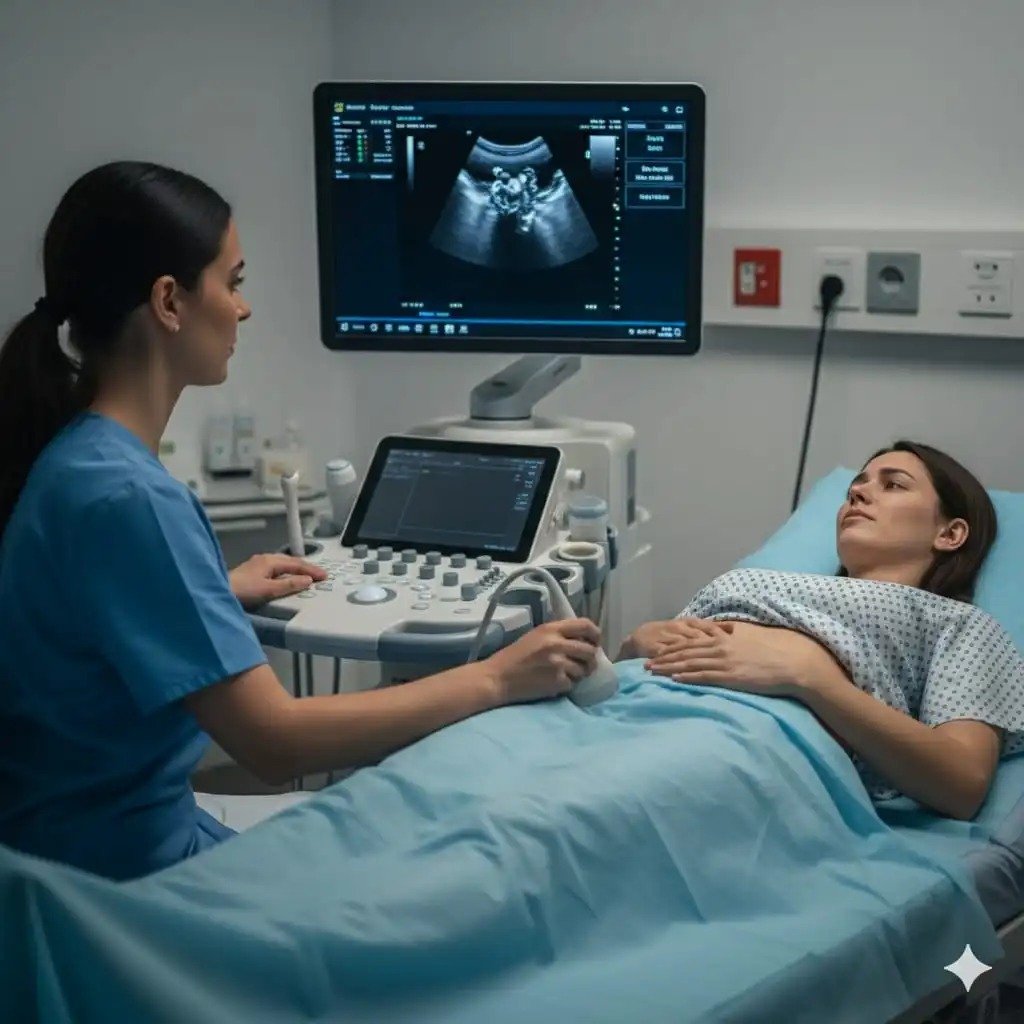Key Takeaways
Endometriosis Occurs when tissue similar to the endometrium grows outside the uterus, causing pain, inflammation, and other complications.
Symptoms Include painful periods, heavy bleeding, fatigue, infertility, digestive issues, migraines, and more.
Diagnosis challenges Symptoms often overlap with other conditions, which can complicate diagnosis and sometimes cause delays.
Early recognition Identifying signs early and consulting a gynecologist can improve treatment outcomes and quality of life.
Awareness Knowing the 20 symptoms helps women seek medical help promptly and manage the condition effectively.
Why does endometriosis pose a significant concern?
A woman’s uterus is lined with endometrial tissue, known as the endometrium. Each menstrual cycle, your body develops a new endometrium to prepare for a fertilized egg. Endometriosis occurs when tissue similar to the endometrial tissue grows outside the uterus. It usually grows on or near reproductive organs in the pelvis or abdomen. Might be in the Fallopian tubes, Ligaments surrounding the uterus (uterosacral ligaments), the Lining of the pelvic cavity, the Ovaries, the Outer surface of the uterus, or the Area between the rectum and the bladder and the uterus.
Endometrial-like tissue that grows in such locations does not shed during a menstrual cycle like normal Endometrial tissue within the uterus does. The accumulation of abnormal tissue outside the uterus can lead to inflammation, scarring, and painful cysts. It also results in the buildup of fibrous tissue. Between reproductive organs, resulting in them “sticking” together.

Symptoms of endometriosis you should know to understand your period pain
Here are 20 symptoms of endometriosis to know more about your period pain:
- Painful periods
Pain in the pelvic area and cramping can begin before a menstrual period and continue for days throughout it. You also might experience lower back and abdominal pain. Another term for painful periods is dysmenorrhea. - Heavy bleeding
Occasionally, you may experience a heavy period or intermenstrual bleeding. Menorrhagia, also called heavy menstrual bleeding (HMB) or heavy uterine bleeding, is common in people with endometriosis. Menorrhagia involves unusually heavy flow or a period that lasts longer than 7 days. - Chronic pelvic pain
You may sometimes experience persistent and intense pelvic pain even when you’re not on your period. This may be because of advanced or resistant disease and scarring - Pain during intercourse
Pain during or after intercourse is a common concern among those with endometriosis. It is also called dyspareunia. You might often feel pain during sex, which is a very personal issue that can be hard to talk about with your gynaecologist. However, it is essential to pay attention to it because it can indicate the severity of the pain and the location of the endometriosis lesions - Abnormal periods
Abnormal periods can involve multiple symptoms that may start before your cycle or with the beginning of your period. The symptoms include painful menstrual cramps (dysmenorrhea) that do not improve with NSAIDs or ibuprofen, heavy bleeding (menorrhagia), nausea, vomiting, diarrhoea, painful bowel movements or urination, chronic pelvic pain, leg pain (neuropathy), headaches or migraines, and fatigue. If you experience any of these symptoms consistently during your periods or follow a cyclical pattern throughout the month, you should notify your gynaecologist - Vaginal bleeding between periods (spotting)
Vaginal bleeding refers to any bleeding that is unusual for you and your period. Endometriosis could be the cause of bleeding between or during your periods. The most common symptoms of endometriosis include irregular or heavy menstrual bleeding or spotting between periods, because the overgrowth of the uterine lining responds to your hormones. It is recommended that you see your doctor. - Pain with urination
If you have misplaced tissue from your bladder or bowel, you might experience painful urination. When these tissues shed and become trapped, it can cause pain during urination, urinary incontinence, bloating, and urinary retention. Doctors refer to this as bladder endometriosis. Although rare, when it occurs, it can be painful. Bladder endometriosis results in inflammation and discomfort in the bladder. While these symptoms are uncommon for endometriosis affecting the urinary tract system, if you experience persistent painful urination, we recommend consulting your gynaecologist. - Pain with bowel movements
When tissue that normally lines your uterus begins to grow on your intestines, it is known as bowel endometriosis. This condition can cause significant pain, including severe abdominal discomfort, bloating, and changes in bowel habits. If you experience symptoms of bowel endometriosis, such as painful bowel movements, cramping in the intestines or rectal pain, especially during menstrual periods, and bloody stools, seek prompt medical attention. These signs are most likely to appear before or during your period. - Ovarian cysts
Most ovarian cysts are normal and will heal on their own, but cysts related to endometriosis (endometriomas) are another classic sign of endometriosis. They can be managed conservatively with medications such as birth control pills, patches, or vaginal rings to regulate hormonal fluctuations. If they grow large and painful, they may require surgical removal. - Pain or bleeding in other areas
If you experience body pain, such as in the chest, along with shortness of breath and coughing up blood, it could be a symptom of endometriosis. Usually, endometriosis patches develop in the lower abdomen and pelvic area. However, if they occur in or around the lungs, they can be life-threatening. Complications may cause bleeding or a collapsed lung. Some individuals may not show any symptoms. Lung involvement in endometriosis is rare. However, if you experience shortness of breath, chest pain, shoulder pain, or cough during menstruation, see a doctor immediately. - Infertility
Endometriosis occurs in approximately 25% to 50% of women with infertility, and it causes scarring as well as damage and inflammation of the fallopian tubes, resulting in infertility. Studies also indicate that endometriosis impacts the quality of the egg and lowers the quantity of eggs in the body.. - Family history of endometriosis or painful periods
Medical experts often see a link between family history and an increased risk of developing the condition later. If someone in your biological family — like your mother, grandmother, or sister — has endometriosis, talk to your healthcare provider about your risk . - Acne and hormonal imbalance
Endometriosis may not directly cause acne; however, research suggests that it is associated with severe acne in teenagers. Both endometriosis and acne can be affected by hormonal imbalances, especially involving oestrogen and androgens. The hormonal fluctuations associated with endometriosis can potentially contribute to the development or worsening of acne in some women. If you notice blackheads, whiteheads, and small cyst-like pimples or bumps under the skin that appear temporarily before and after your periods, consult your healthcare provider. - Extreme tiredness (fatigue)
If you experience extreme tiredness and weakness, accompanied by low energy levels and increased fatigue around your menstrual cycle, consult your doctor. Endometriosis fatigue can also include symptoms such as muscle or joint aches and pains, headaches, and insomnia., dizziness, or nausea. If the fatigue is severe, you might often take long naps and feel faint when standing up or moving quickly. - Brain fog
The pain from endometriosis might change your brain in ways that affect your mood, motivation, or thinking, even if you don’t have chronic pain. It’s also called the endometriosis brain.. - Trouble sleeping
Endometriosis symptoms can make it hard to fall asleep. You might wake up more often or sleep for shorter periods. Poor sleep can exacerbate pelvic pain or negatively impact your mood. Depression or anxiety can lead to more sleep problems.. - Depression or anxiety
Endometriosis can impact your mental health and lower your quality of life compared to those without the condition. Hormonal changes during your menstrual cycle can worsen existing mental health issues. It may influence existing disorders such as anxiety, depression, bipolar disorder, substance use disorders, attention deficit hyperactivity disorder (ADHD), or sexual dysfunction. The 2-year risk of chronic opioid use was observed as 4.4% in women with endometriosis. The relative risk of chronic opioid use among women with endometriosis compared to those without was higher. Even if you don’t develop a mental health condition, endometriosis symptoms can still negatively affect your quality of life. - Migraines or headaches
Endometriosis and migraines are two conditions worsened by the menstrual cycle. Frequent migraines or headaches during periods are likely caused by your body’s reaction to endometrial-like tissue, genetics, or hormonal imbalance. Pure menstrual migraine makes life more difficult when headaches and other symptoms occur only during menses. Menstrual-related migraine happens when headaches and other symptoms appear both during menses and at different times in the month. If this continues, consult your doctor. - Allergies
Women with endometriosis are much more likely to have allergies. Additionally, 88% of women with endometriosis and either fibromyalgia or chronic fatigue syndrome also have allergies. If your allergies worsen during your periods along with severe pain and cramps, consult your healthcare provider. - Hypersensitivity to pain
Women experience varying levels of non-specific pain, from mild to severe cramps. If you experience intense symptoms of endometriosis, including painful sex and painful bowel movements, it might be linked to deep endometriosis. This could indicate that your chronic pelvic pain caused by endometriosis is connected to central sensitization syndrome, which can lead to a decreased overall quality of life and a higher risk of anxiety and depression. Central sensitization is also associated with patients having low pain thresholds due to hypersensitivity to pain stimuli..
Living with it
Knowing the 20 symptoms of endometriosis will enable you to identify warning signs early and get appropriate care. From heavy bleeding and painful periods to fatigue, infertility, and even mental health issues, endometriosis hurts women in all sorts of ways. Since the symptoms frequently overlap with other ailments, it might take a while to receive a correct diagnosis. If you have these symptoms, consult your doctor for diagnosis and treatment. Educate yourself, pass this along to others, and become an advocate for your own health today.
FAQs
How do you know if you have endometriosis?
Your doctor may strongly suspect you have endometriosis based on your symptoms. However, the only way to confirm it is through a laparoscopy. This is a type of surgery where your doctor will look for and remove any lesions. Afterwards, they’ll send the tissue to a lab, where a specialist will examine it under a microscope to confirm the presence of endometriosis cells.
What happens if endometriosis is left untreated?
You may develop new lesions, and the existing ones could cause more pain, inflammation, and damage nearby. However, endometriosis is difficult to predict. In some people, endometriosis-related tissue may disappear, shrink, or remain unchanged.
Is endometriosis cancer?
No, endometriosis is not a type of cancer. Some research indicates that women with endometriosis might have a slightly higher risk of developing certain cancers. If you’re concerned about your risk of gynaecologic cancer, consult your healthcare provider.
Can you get pregnant if you have endometriosis?
Yes, you can get pregnant, but it might be more difficult for you compared to people without endometriosis. If you have endometriosis and want to become pregnant, talk to your healthcare provider about the best treatment options. You may need surgery to treat endometriosis. Your provider will work with you to find the best plan to support your pregnancy.
What is endometriosis pain equivalent to?
Your symptoms may be mild, but some people with severe endometriosis compare pain from endometriosis to labour contractions, appendicitis, kidney stones, or a urinary tract infection.


